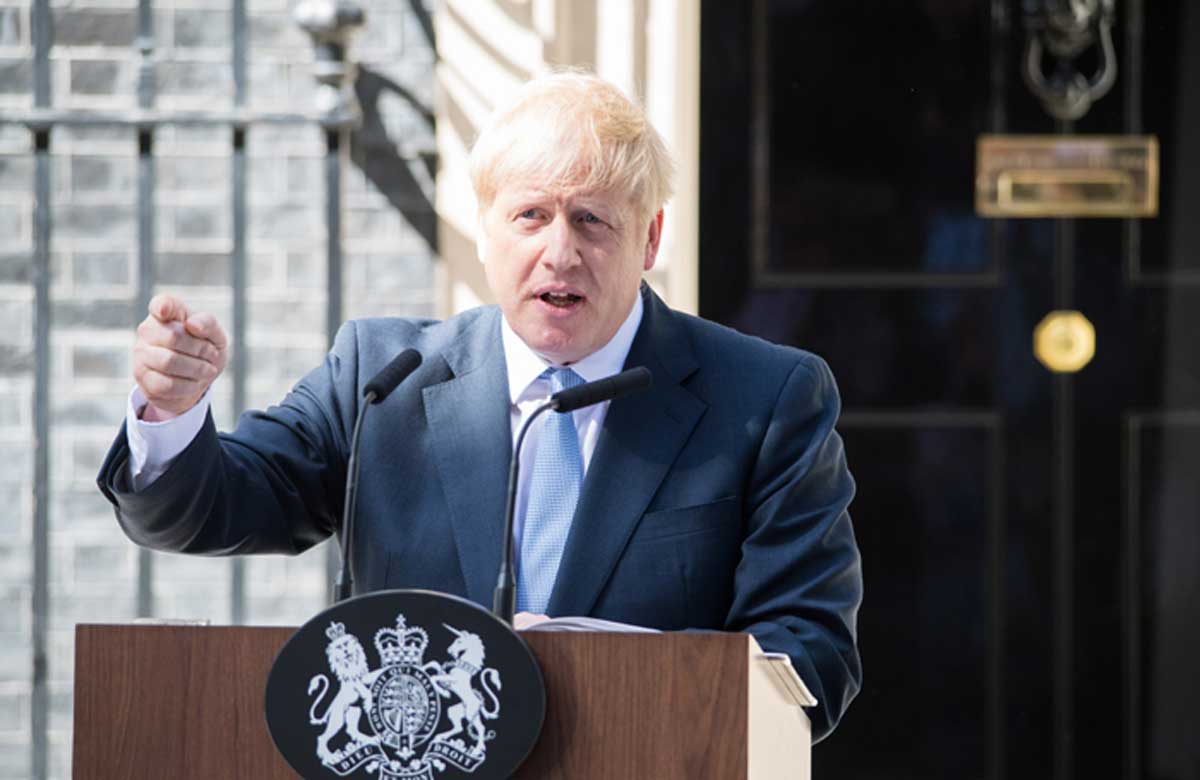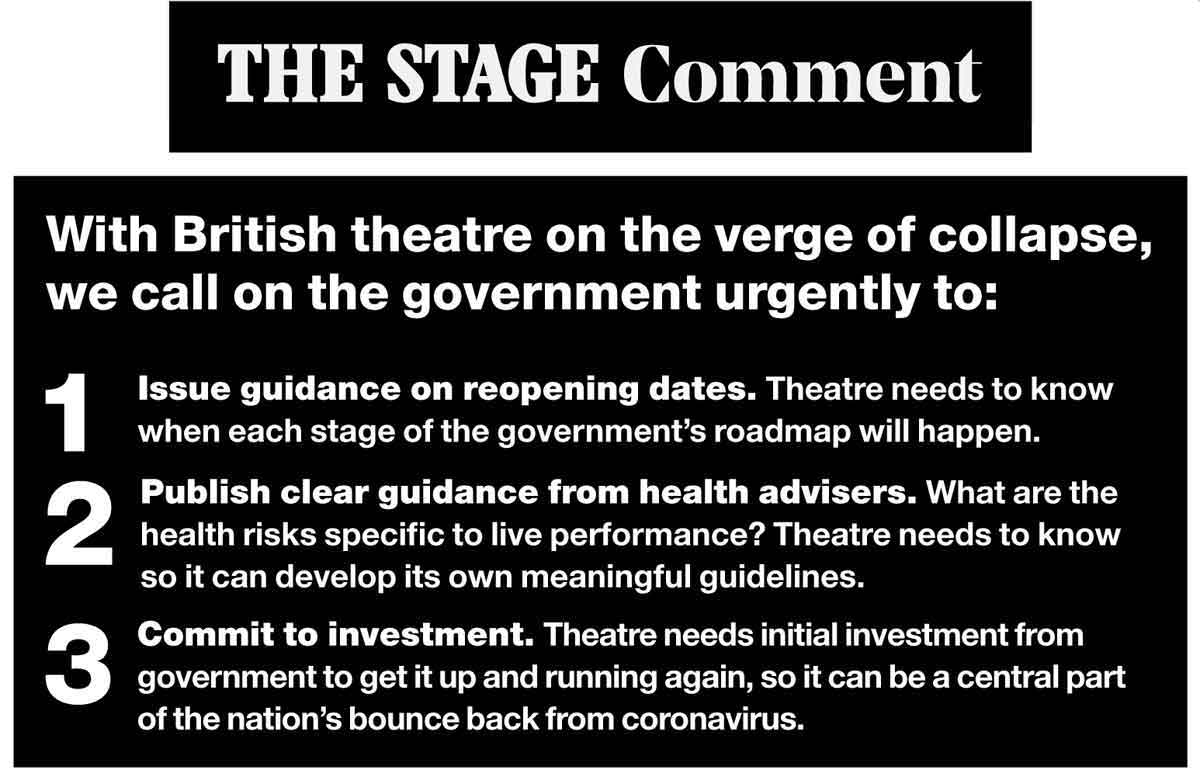The Stage’s message to government: act now to save theatre
After three months of lockdown, and with the industry on the verge of collapse, The Stage adds its voice to calls for culture secretary Oliver Dowden to take immediate action to save the sector
Theatre sits on a precipice. It watches on helplessly, while other parts of the country open up. Around the UK, venues are going into administration, others are making swingeing redundancies. Our once world-leading industry is being reduced to a shadow of its former self, its workforce devastated.
Industry leaders have engaged proactively with the government to try to find a solution, one that preserves both audience safety and the national treasure that is the British theatre sector. But last week’s woeful ‘roadmap’ to reopening announced by culture secretary Oliver Dowden provided no real direction whatsoever. In fact, it betrayed a complete lack of understanding about what theatres need and how urgently they need it.
The government must act now. Words will achieve nothing without concrete action.
The key element missing from the roadmap is dates: these need to be published immediately. Firm dates that allow theatres to know when they can start open-air performances and – most crucially – a ‘not before’ date that indicates when they can plan to open with full auditoriums. This may have to be moved if circumstances regarding the virus change, but an early indication is crucial so that theatres can plan. Currently, they are having to make long-term decisions – with potentially catastrophic consequences – based on no idea of when they might be able to resume operations.
Theatre also needs better guidance on the science. Current advice is contradictory. How can pubs be regarded as places where the virus is less likely to spread than in theatres?
Theatres are much more controlled environments – audiences sit in set seats facing away from each other, and track and trace will be possible via box office data.
Likewise, aircraft travel – with passengers seated in close proximity – remains permitted. How is this so? If there are good health reasons for the extra concern around theatre spaces, then these need to be published so that theatres can develop strategies to mitigate the risks to audiences and staff.
And, finally, government must invest in theatre. The quicker it does this, the greater the payback will be. In 2019, the arts and culture industry added £10.8 billion to the UK economy. It can do this again and be a key part of the nation’s bounce back from the current crisis. Theatre is a crucial driver for tourism and other parts of the service economy, and can bring together communities. It can be a central pillar in restoring the mental health and well-being of the nation as it emerges from the pandemic.
The government needs to provide extra support for the workforce unable to work – including the 70% of the industry who are freelance and who will be left stranded come August, or indeed the many who have already slipped through the cracks in the government’s support schemes. Sizeable emergency funding is needed to prevent more theatre organisations from collapse – this will need to take the form of grants, but extending Theatre Tax Relief, investment in commercial theatre productions and underwriting insurance is also required.
The government has a clear choice: act now and help save one of Britain’s world-famous industries, or dither and be remembered as the people who allowed the nation’s cultural life to fall into ruin.
Opinion
Recommended for you
Advice
Recommended for you
Most Read
Across The Stage this weekYour subscription helps ensure our journalism can continue
Invest in The Stage today with a subscription starting at just £5.99
 The Stage
The Stage











